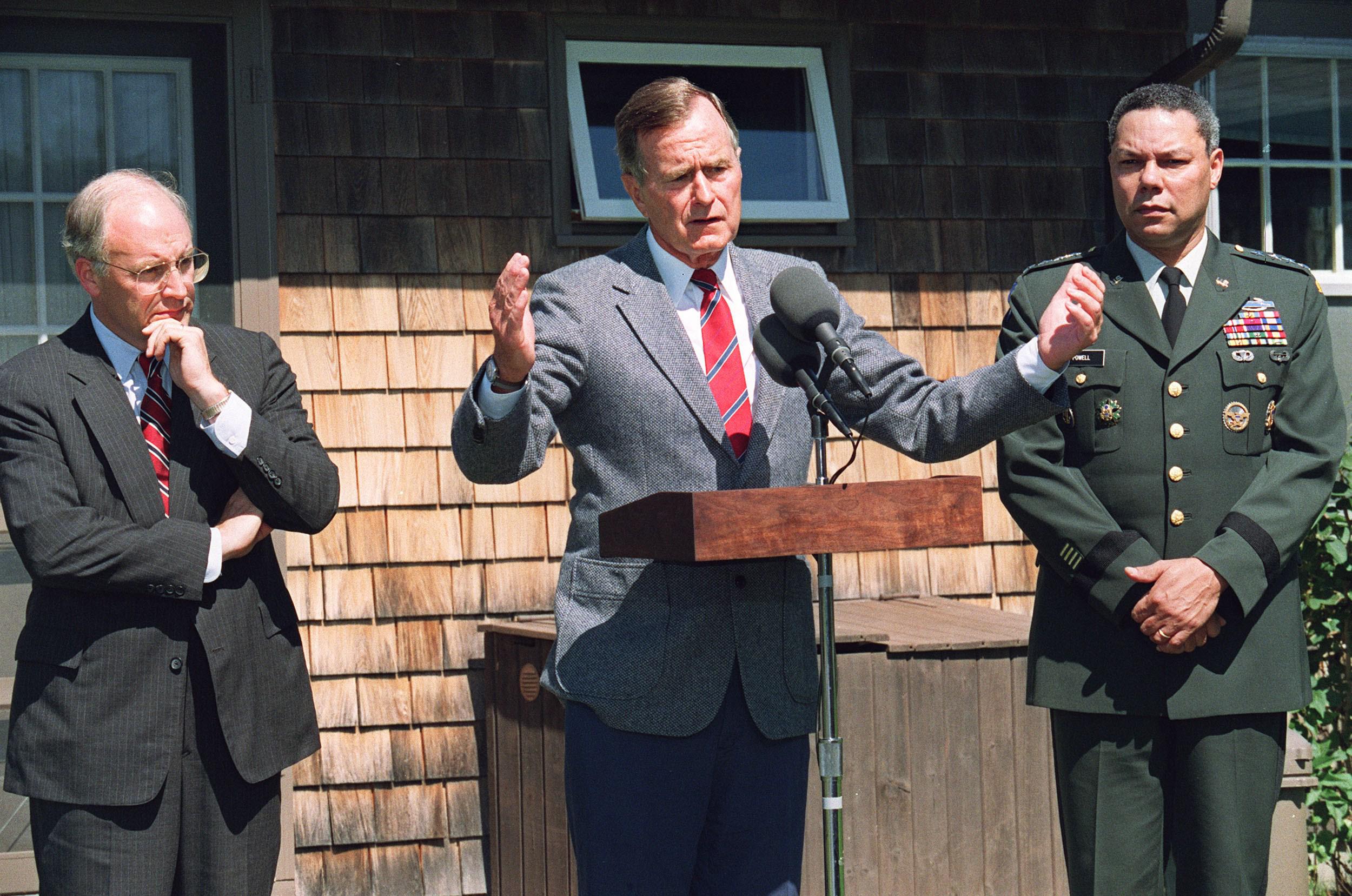Nostalgia for the first Gulf War crept into Tuesday night’s debate, as the candidates downplayed some of the more unpleasant memories and rewrote history in order to cite the air campaign against Saddam Hussein’s military as an example of how to defeat ISIS.
Asked by moderator Wolf Blitzer what he meant by “carpet-bomb ISIS into oblivion,” Sen. Ted Cruz responded that it means:
Using overwhelming air power to utterly and completely destroy ISIS. To put things in perspective, in the first Persian Gulf War, we launched roughly 1,100 air attacks a day. We carpet-bombed them for 36 days, saturation bombing, after which our troops went in and in a day and a half mopped up what was left of the Iraqi army.
As Defense One national security reporter Marcus Weisgerber pointed out, the U.S. did not carpet-bomb in the opening days of the Desert Storm.* That air campaign was in fact the first large-scale deployment of precision-guided munitions to target specific Iraqi military assets, which was the reason it was so effective. This doesn’t mean the bombs never struck civilians, but Cruz’s formulation implies no effort was made to distinguish them. Carpet-bombing is the indiscriminate bombing of a particular area to cause uniform destruction without distinguishing between targets, a tactic the U.S. used to some degree in Germany during World War II and in North Vietnam.
“Carpet-bombing” is one of Cruz’s go-to lines, but as retired Maj. Gen. Robert Scales told the New York Times last week, it’s “one of those phrases that people with no military experience throw around.” This was amply demonstrated when Blitzer pressed Cruz on whether he would be willing to bomb civilians in the ISIS capital, Raqqa, Syria. “You would carpet-bomb where ISIS is, not a city, but the location of the troops,” Cruz replied. “You have embedded special forces to direct the air power. But the object isn’t to level a city. The object is to kill the ISIS terrorists.” That is a pretty good definition of precision bombing, Ted! Carpet-bombing, for Cruz, seems to just mean “a lot of bombs.”
Ohio Gov. John Kasich also looked back fondly on the early ’90s, calling for “people on the ground, troops on the ground in a coalition similar to what we had in the first Gulf War. I remember when the Egyptian ambassador to the United States stood in the Rose Garden and pledged Arab commitment to removing Saddam Hussein from Kuwait.” And later: “We have to go massively, like we did in the first Gulf War where we destroyed Saddam’s ability to take Kuwait.”
This is a strange example to refer to since, as Kasich mentions, the goal of that war was not to destroy Saddam Hussein’s regime but to force the withdrawal of Iraqi troops from Kuwait. Over the opposition of many hawks at the time, the war left Hussein in power. This would be roughly analogous to pushing ISIS out of Iraq but leaving it in control of parts of Syria. Plus, destroying the military capabilities of a state is a very different military challenge than fighting a hybrid insurgent group/terrorist organization in the middle of a multisided civil war.
Candidates like talking about the Gulf War mostly because it’s a war America won. The fact that it holds very few lessons for today’s war with ISIS doesn’t seem to matter. I guess it helps not to think too hard about the details.
*Correction, Dec. 16, 2015: This post originally misspelled Marcus Weisgerber’s last name. Due to a photo provider error, it also misspelled Colin Powell’s last name.
